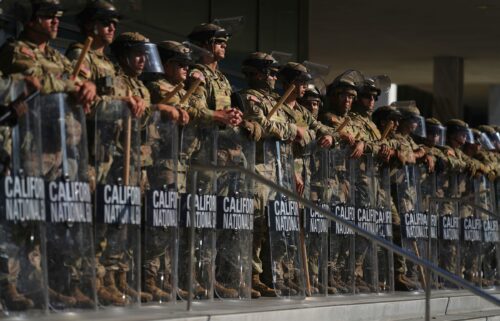UPDATE: Deed restrictions at Moro Cojo stands
UPDATE 7/14/2017 5:20 p.m.:
The California Coastal Commission is taking a stand on a controversial issue about affordable housing in Castroville. At stake, the rights of homeowners in Moro Cojo to sell their properties at market value. However, that push failed after a tie vote by the commission on Friday.
Constructed in the early 2000’s, Moro Cojo was created as an affordable housing development off of Castroville Boulevard in North Monterey County with 90 apartments and 175 single family homes.
It made the American Dream a reality for folks like Jose Luis Parro and others thanks to sweat equity.
“Well, what we did was build the trenches for the foundation,” Parro said. ‘We did the framing, we did the roofing, everything but the electrical, obviously the cement. A lot of blood, sweat and tears.”
While he isn’t planning to sell his home, if he chose to, he wants to be able to get what he calls a “fair price.”
“If we choose to sell, or our kids later down the line chooses to sell, if they make a little coin, cool,” Parro said. “If they want to make a little money after, you know I hate to say it, die, but you know that’s for them to decide.”
However the development came with deed restrictions that required the homes to stay affordable and available to low income families. With Friday’s decision, when those houses sell, they will continue to be priced at under market value. It’s something that affordable housing developers say is unheard of in the state. According to the president of Community Housing Improvement Systems and Planning Association, deed restrictions are typically lifted after 15 or 20 years.
“It’s burdening these 161 families, such that they have to be held responsible for future affordable housing and we don’t think that’s fair,” said Alfred Diaz-Infante, president of CHISPA. “It really is about social justice, social equity, that families be treated equally. That’s the bottom line.”
Monterey County leaders previously approved amending the restrictions, allowing homeowners to sell their home for market value after 20 years, but an appeal was filed to the Coastal Commission.
“The local coastal plan says affordable housing must be protected, must be preserved unless there’s replacement housing,” said Jane Haines. “And no one has proposed replacement housing, so that’s what the issue was.”
CHISPA said there would be more affordable housing built down the line. As for the idea that Moro Cojo residents would simply flip their homes to make more money, Diaz-Infante said a recent survey of their properties found 90-percent of the original owners still own the homes.
Diaz-Infante said the rental units in the Moro Cojo area, they would remain affordable.
ORIGINAL POST:
The California Coastal Commission is slated to discuss the Moro Cojo Inclusionary Housing Subdivision on Friday.
Constructed in the early 2000’s, Moro Cojo was created as an affordable housing project located off of Castroville Boulevard near Castroville. It has 90-multi family units and 175 single-family homes. However, the project came with deed restrictions which required all of the homes to be affordable and available only to very low, low or moderate income families.
However, families living there now say they are in a hard financial place because if they choose to sell, it has to be under market value.
Affordable housing developer CHISPA (Community Housing Improvement Systems and Planning Association) asked Monterey County to modify the deed restrictions on 161 of the 175 homes by reducing the term of the affordability requirement from “permanent” to 20 years.
The board of supervisors approved the change, but it was appealed to the Coastal Commission by people who raised local coastal program issues.
KION’s Mariana Hicks is at the meeting and will have more at 5 p.m.

